The Parent and Educator Resource Central collection started in 2018, with an initial grant from the Illinois State Library. In addition to books and kits at Lincoln Library, the PERC collection also offers downloadable and online resources.
All of the materials in the PERC collection meet one of three criteria:
- Instructional material for teachers and parents
- Behavioral material with practical applications
- Educational philosophy with practical applications
General parenting, family health, family planning, pre-natal, and educational topics that don’t have immediate practical application can be found in non-fiction on the second floor.
New & Notable
-
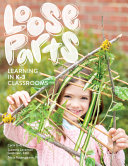
Loose Parts Learning in K-3 Classrooms
Loose parts. You have heard the term, probably in the context of promoting engaging play with open-ended, natural, and manufactured materials that can be manipulated with limitless possibilities. In this book, discover how a loose parts mindset promotes active learning in the early elementary classroom, enhancing curriculum and ensuring connection to state standards.
Offering inspiration and guidance on developing, applying, and teaching a loose parts mindset, the authors break down common myths of using loose parts for learning and walk you through getting started in the classroom and on the school grounds. Examine your role as an educator, address safety concerns, and explore how you might evaluate and assess loose parts in the classroom.
The inspiring photographs in this book showcase ways to apply the loose parts mindset to science, technology, reading and literacy, engineering, art, and math lessons. Use this book as a smorgasbord of ideas--pick and choose ones that work for you, your students, and your community. None of us is too old for a little loose parts play! -
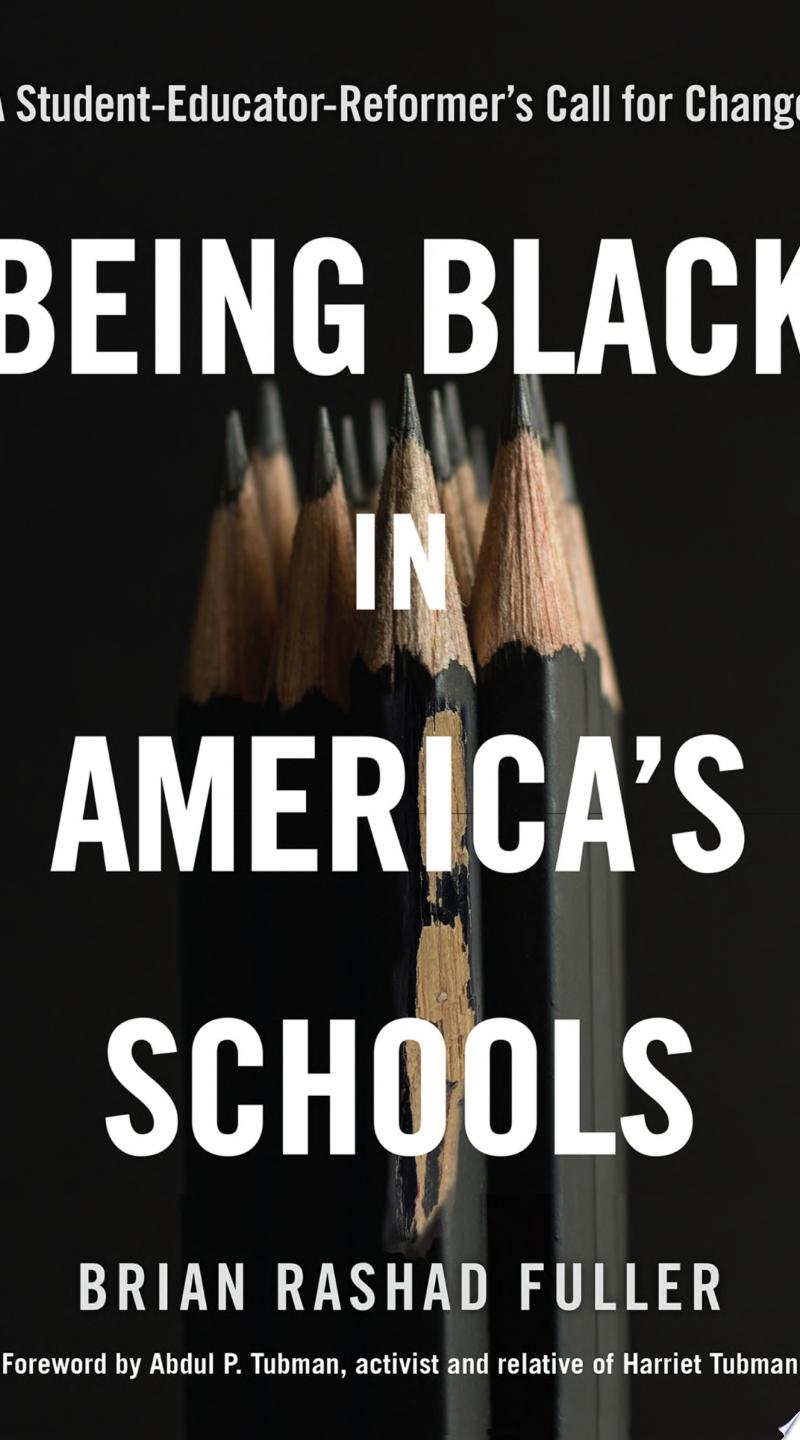
Being Black in America's Schools
In a polarizing and racially divided America, what do children of color learn about themselves before they even go to school? How do they see themselves and is that image only exacerbated by spending twelve years in a public education system that perpetuates negative stereotypes? Brian Rashad Fuller personally knows that the impact of low expectations can be devastating, as proved by the “school to prison” pipeline that so many students have experienced. He aims to make a difference in this humanizing and very personal portrayal of what it means to be Black in America’s schools.
As a Black man who has spent his life as a student and an educator, Brian shares his own story of navigating the world, overcoming his family struggles, and eventually entering an educational system that he believes is inherently racist, damaging, and disserving. He exposes the challenges Black students face in elite and predominantly white universities and spaces, dissects “Black exceptionalism” in the schooling experience, and offers a firsthand account of the emotional and psychological impact made by teachers, administrators, policies, practices, lessons, and student interactions. Most Americans are looking for answers on how to improve our education system—as illustrated by the critical race theory debate—but have not fully understood the lived Black experience, until now.
With powerful insight into a thoroughly American institution, Brian offers present-day solutions, and liberating hope, for a centuries-long issue, as well as a galvanizing and radical step forward. It is a book essential to our challenging times. -
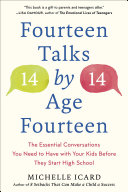
Fourteen Talks by Age Fourteen
Trying to convince a middle schooler to listen to you can be exasperating. Indeed, it can feel like the best option is not to talk! But keeping kids safe—and prepared for all the times when you can't be the angel on their shoulder—is about having the right conversations at the right time. From a brain growth and emotional readiness perspective, there is no better time for this than their tween years, right up to when they enter high school.
Distilling Michelle Icard's decades of experience working with families, Fourteen Talks by Age Fourteen focuses on big, thorny topics such as friendship, sexuality, impulsivity, and technology, as well as unexpected conversations about creativity, hygiene, money, privilege, and contributing to the family. Icard outlines a simple, memorable, and family-tested formula for the best approach to these essential talks, the BRIEF Model: Begin peacefully, Relate to your child, Interview to collect information, Echo what you're hearing, and give Feedback. With wit and compassion, she also helps you get over the most common hurdles in talking to tweens, including:
• What phrases invite connection and which irritate kids or scare them off
• The best places, times, and situations in which to initiate talks
• How to keep kids interested, open, and engaged in conversation
• How to exit these chats in a way that keeps kids wanting more
Like a Rosetta Stone for your tween's confounding language, Fourteen Talks by Age Fourteen is an essential communication guide to helping your child through the emotional, physical, and social challenges ahead and, ultimately, toward teenage success. -
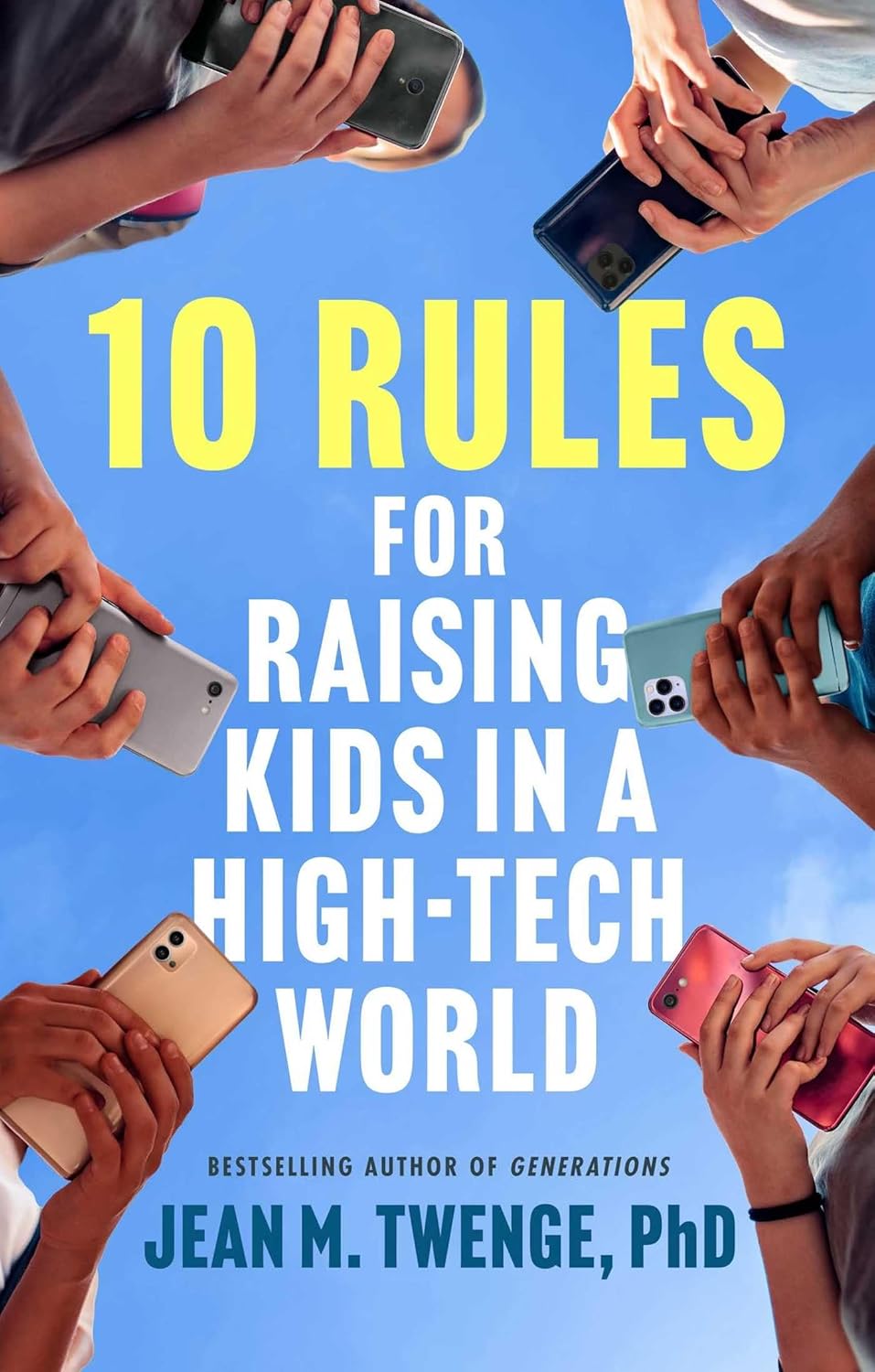
10 Rules for Raising Kids in a High-Tech World
Parenting today often feels like an uphill battle, with technology invading every corner of our kids’ lives. From the rise of social media addiction to the growing mental health crisis among children and teens, parents are grappling with how they can create a healthy, balanced relationship with technology for their kids.
Bestselling author Jean Twenge provides the much-needed playbook parents have been asking for. Drawing on her decades as a psychologist studying the impact of technology and mental health and her personal experience as the mother of three teenagers, Twenge offers ten actionable rules for raising independent and well-rounded children. From setting “No Social Media Until 16” boundaries to creating no-phone zones like bedrooms and family dinners, these rules are grounded in evidence yet simple enough to incorporate into any family routine.
Short, empowering, and timely, this book equips parents with the tools to combat not just immediate harms such as online bullying but also helps to nurture essential life skills, preparing kids and teens to become autonomous adults. -
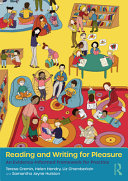
Reading and Writing for Pleasure
Reading and writing for pleasure represent issues of global concern and interest in policy, research and practice, underpinned by evidence illustrating their importance for young people's academic, social and emotional experiences and outcomes. In the face of a sustained decline in children's enjoyment in both reading and writing, this highly significant book presents findings from a three-year study of research and practice that nurtures young people's engagement as readers and writers.
The book offers a rich understanding of the study, highlighting the commonalities and synergies identified from the research literature and diverse practice contexts. It introduces a new and powerful Reading and Writing Framework for Practice for schools and charitable literacy programmes. The authors offer practical strategies and recommendations throughout for practitioners, researchers and policy makers who wish to advance this agenda in their own contexts. Areas covered include:
- The nature of reading and writing for pleasure
- Literate identities
- Motivating readers and writers
- Social interactions
- Role models and connected communities
- Future research, practice and policy
This field-defining text is a key resource for all those committed to halting the decline in young people's engagement as volitional readers and writers.
-
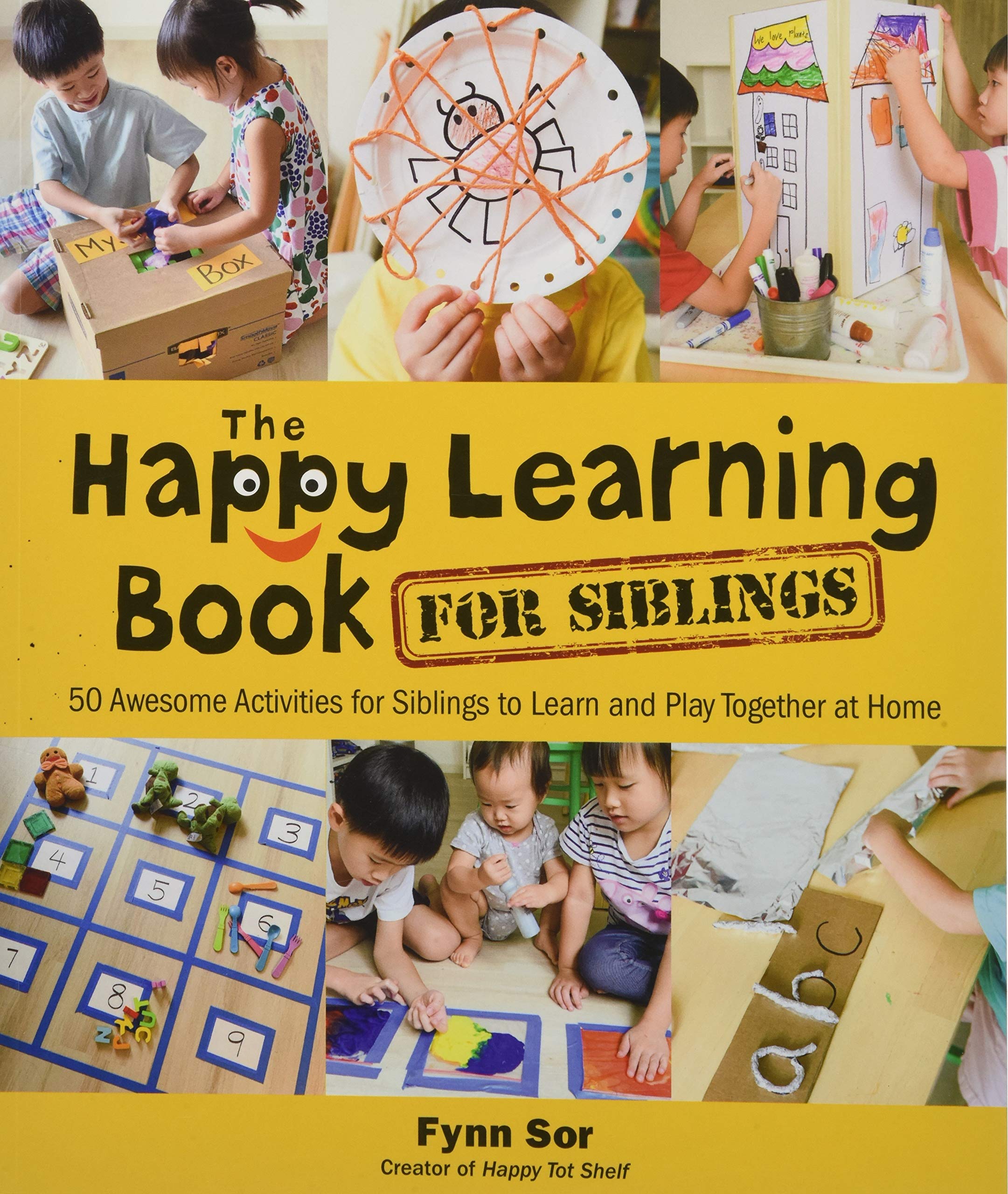
The Happy Learning Book For Siblings: 50 Awesome Activities For Siblings To Learn And Play Together At Home
Your home is the perfect place for learning, fun, and sibling bonding!The Happy Learning Book for Siblings features 50 hands-on activities you can conduct in the comfort of your home. They are divided into five learning areas (Literacy, Numeracy, Discovery of the World, Motor Skills and Sensory Play, Arts and Crafts), and are scaled for children of different ages to experience together. Spark hours of joyful learning and playful moments for your children, from toddlers to preschoolers and school-aged kids!
-
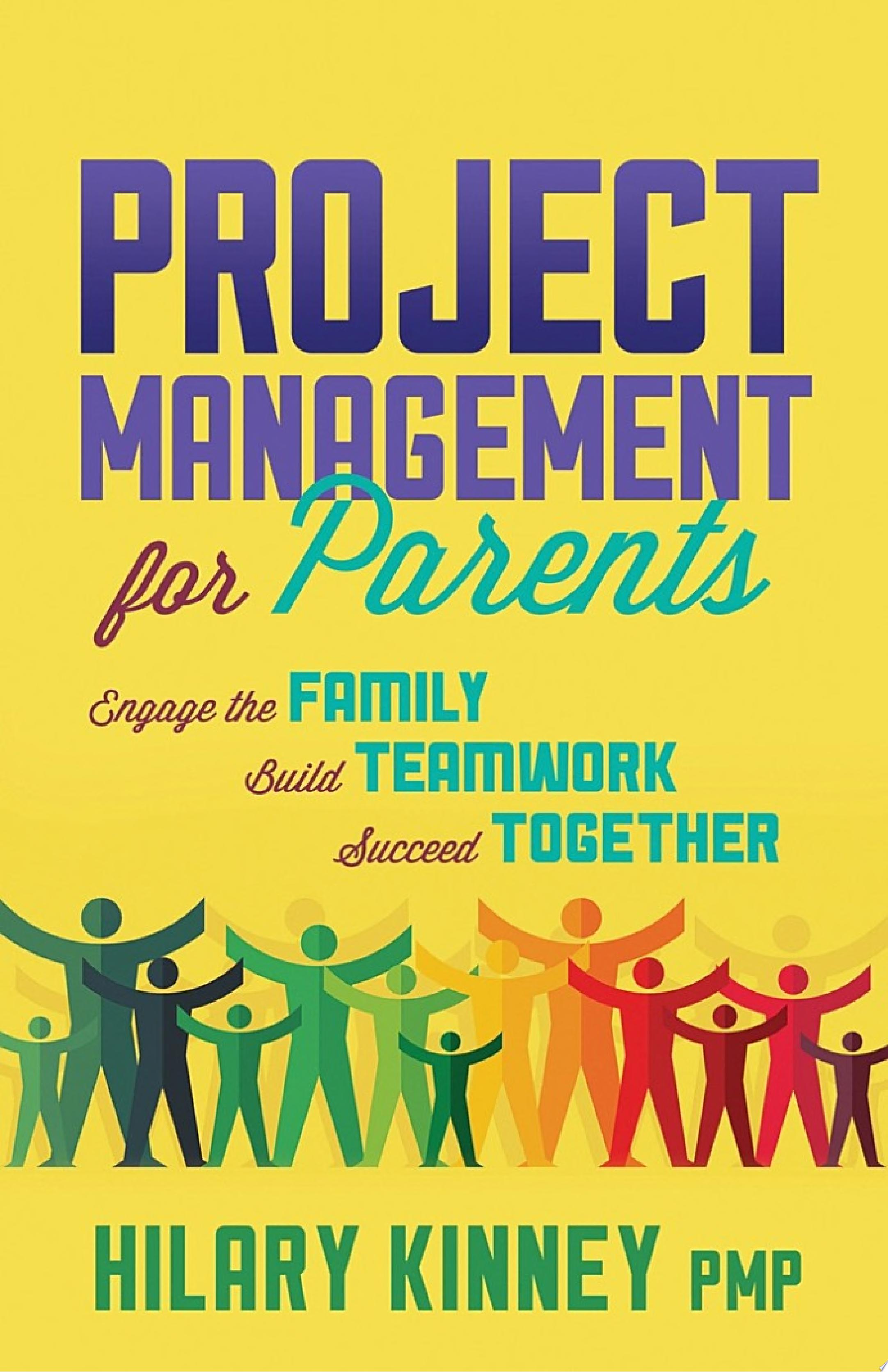
Project Management for Parents
Project Management for Parents helps families strengthen their relationships and reduce stress by applying techniques, normally used by billion-dollar companies, to streamline their busy lives.
In today’s day and age, especially amidst the changes brought about by a global pandemic, parents, stepparents, guardians, and caregivers need a set of tools that can be used with children of any age to help them focus on their priorities, get organized, and boost productivity. In Project Management for Parents, Hilary Kinney provides an accessible, repeatable framework that can transform their approach to any kind of task at home in three steps:
- Step 1: Build Teamwork
- Step 2: Establish Your Approach
- Step 3: Succeed as a Family
What’s more, these same principles help improve family relationships by creating a positive environment, fostering communication, and encouraging children to think and act independently. This practical guidebook includes easy-to-understand exercises and tools that both parents and children can use, along with 25 real-life examples like selecting a childcare provider, managing homework, discussing risky teenage behavior, applying to college, and moving to a new city. Hilary shows parents how to apply proven project management concepts to family life, equipping families to successfully achieve their goals—together.
-
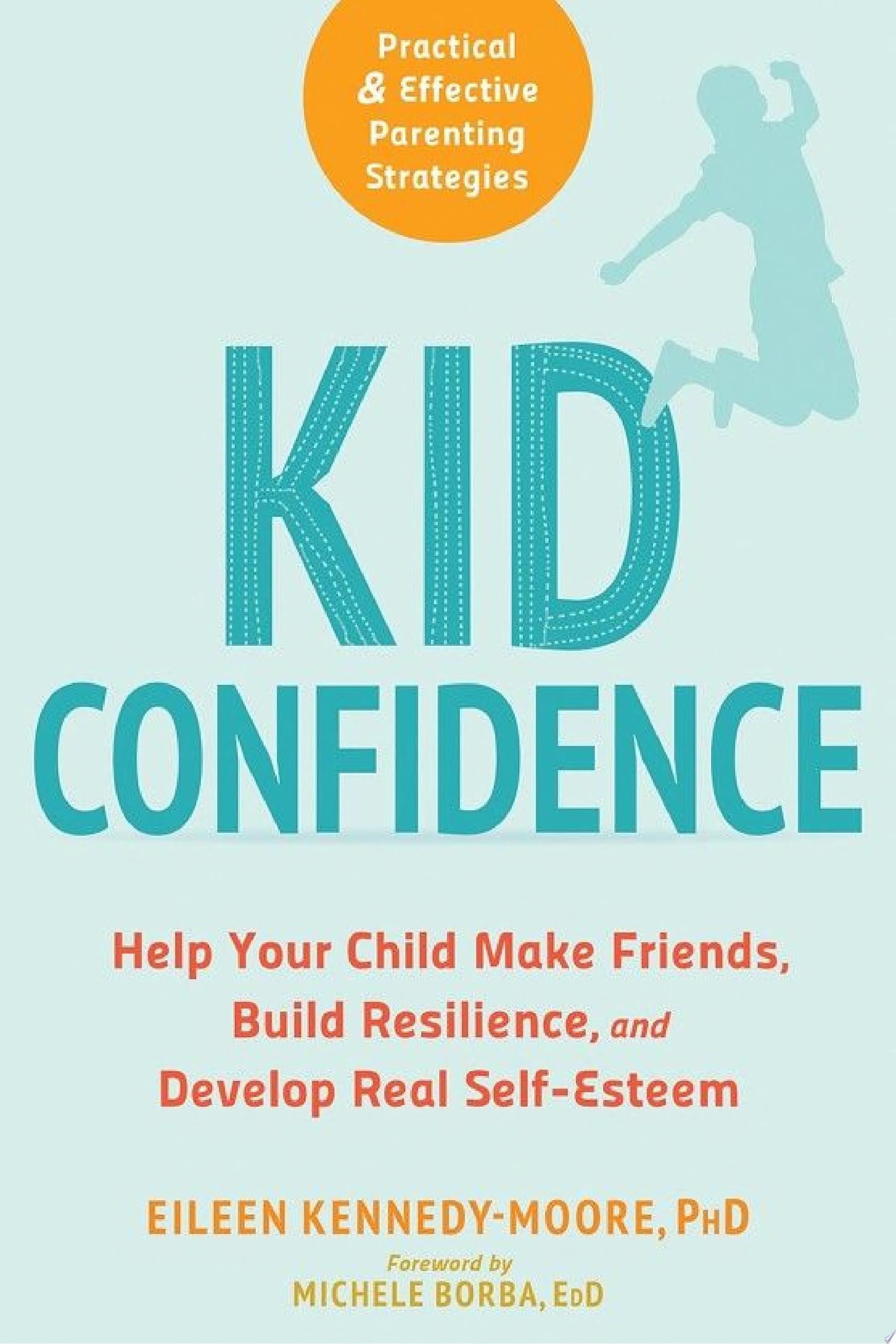
Kid Confidence
As parents, it's heartbreaking to hear children say negative things about themselves. But as children grow older and begin thinking about the world in more complex ways, they also become more self-critical. Alarmingly, studies show that self-esteem, for many children, takes a sharp drop starting around age eight, and this decline continues into the early teen years. So, how can you turn the tide on this upsetting trend and help your child build genuine self-esteem?
With this guide, you'll learn that self-esteem isn't about telling kids they're "special." It's about helping them embrace the freedom that comes with a quiet ego--a way of being in the world that isn't preoccupied with self-judgment, and instead embraces a compassionate view of oneself and others that allows for both present awareness and personal growth. When kids are less focused on evaluating and comparing themselves with others, they are freer to empathize with others, embrace learning, and connect with the values that are bigger than themselves.
You'll also discover how your child's fundamental needs for connection, competence, and choice are essential for real self-esteem. Connection involves building meaningful and satisfying relationships that create a sense of belonging. Competence means building tangible skills. And choice is about being able to make decisions, figure out what matters, and choose to act in ways that are consistent with personal values. When children are able to fulfill these three basic needs, the question of "Am I good enough?" is less likely to come up.
If your child is suffering from low self-esteem, you need a nuanced parenting approach. Let this book guide you as you help your child create unshakeable confidence and lasting well-being.
-
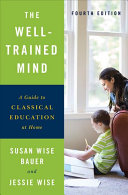
The Well-Trained Mind
The Well-Trained Mind will instruct you, step by step, on how to give your child an academically rigorous, comprehensive education from preschool through high school--one that will train him or her to read, to think, to understand, to be well-rounded and curious about learning. Veteran home educators Susan Wise Bauer and Jessie Wise outline the classical pattern of education called the trivium, which organizes learning around the maturing capacity of the child's mind and comprises three stages: the elementary school "grammar stage," when the building blocks of information are absorbed through memorization and rules; the middle school "logic stage," in which the student begins to think more analytically; and the high-school "rhetoric stage," where the student learns to write and speak with force and originality. Using this theory as your model, you'll be able to instruct your child--whether full-time or as a supplement to classroom education--in all levels of reading, writing, history, geography, mathematics, science, foreign languages, rhetoric, logic, art, and music, regardless of your own aptitude in those subjects.
Thousands of parents and teachers have already used the detailed book lists and methods described in The Well-Trained Mind to create a truly superior education for the children in their care. This extensively revised fourth edition contains completely updated curricula and book lists, links to an entirely new set of online resources, new material on teaching children with learning challenges, cutting-edge math and sciences recommendations, answers to common questions about home education, and advice on practical matters such as standardized testing, working with your local school board, designing a high-school program, preparing transcripts, and applying to colleges.
You do have control over what and how your child learns. The Well-Trained Mind will give you the tools you'll need to teach your child with confidence and success.
-
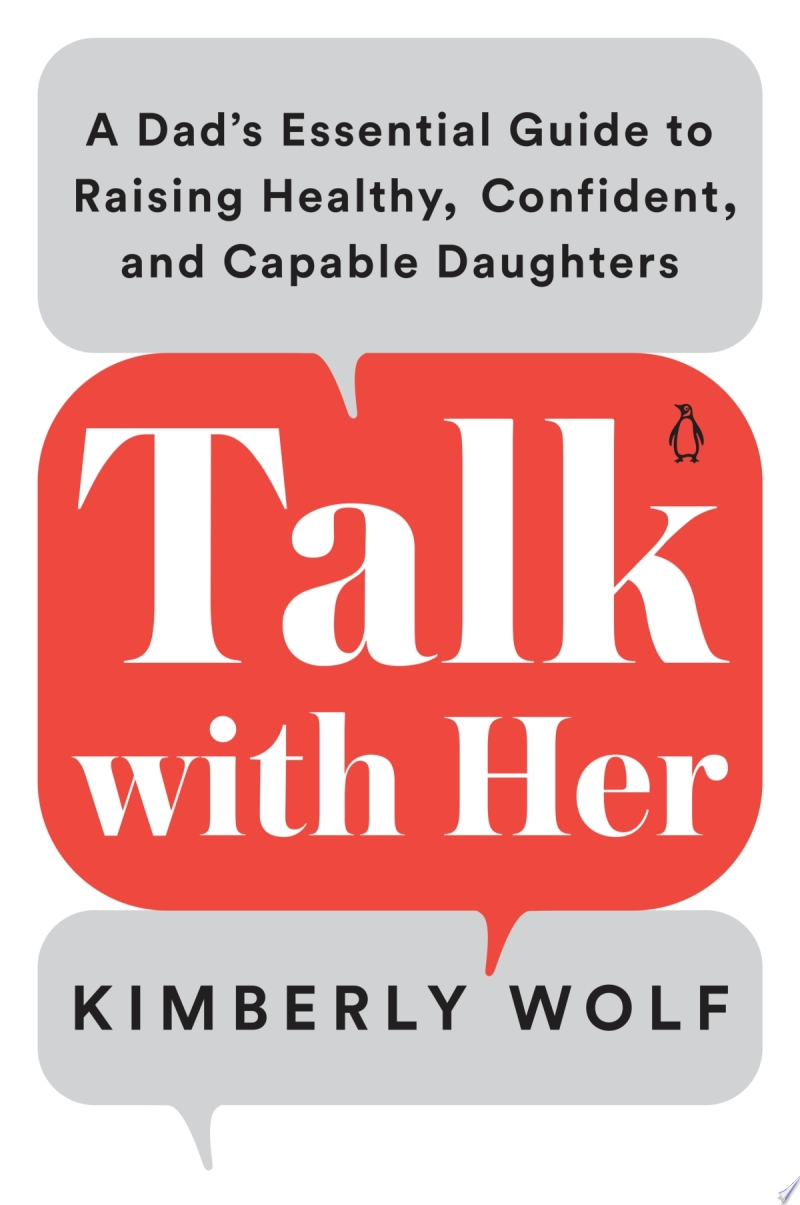
Talk with Her
A comprehensive guide to help dads support their daughters through the preteen and teen years up to adulthood
“Communication” with your daughter doesn’t mean having “big” conversations all the time. Creating even the smallest moments of father-daughter connection can build bonds. In Talk with Her, you’ll find information on nineteen topics defining your daughter’s life—including body positivity, romantic relationships, social media, mental health, and academic achievement—along with the communication strategies you’ll need to address them with care and confidence.
With cutting-edge research, expert perspectives, and talking points, Kimberly Wolf brings broad-ranging and often overwhelming topics into focus to help you make a positive, lifelong impact on your daughter one conversation at a time.
“Kimberly Wolf provides a vital map for fathers in navigating the most important—and often the most challenging and turbulent—aspects of father-daughter relationships. This is an engaging, insightful, thoughtful, and wonderfully useful book.” —Dr. Richard Weissbourd, Senior Lecturer and Faculty Director of Making Caring Common, Harvard Graduate School of Education -
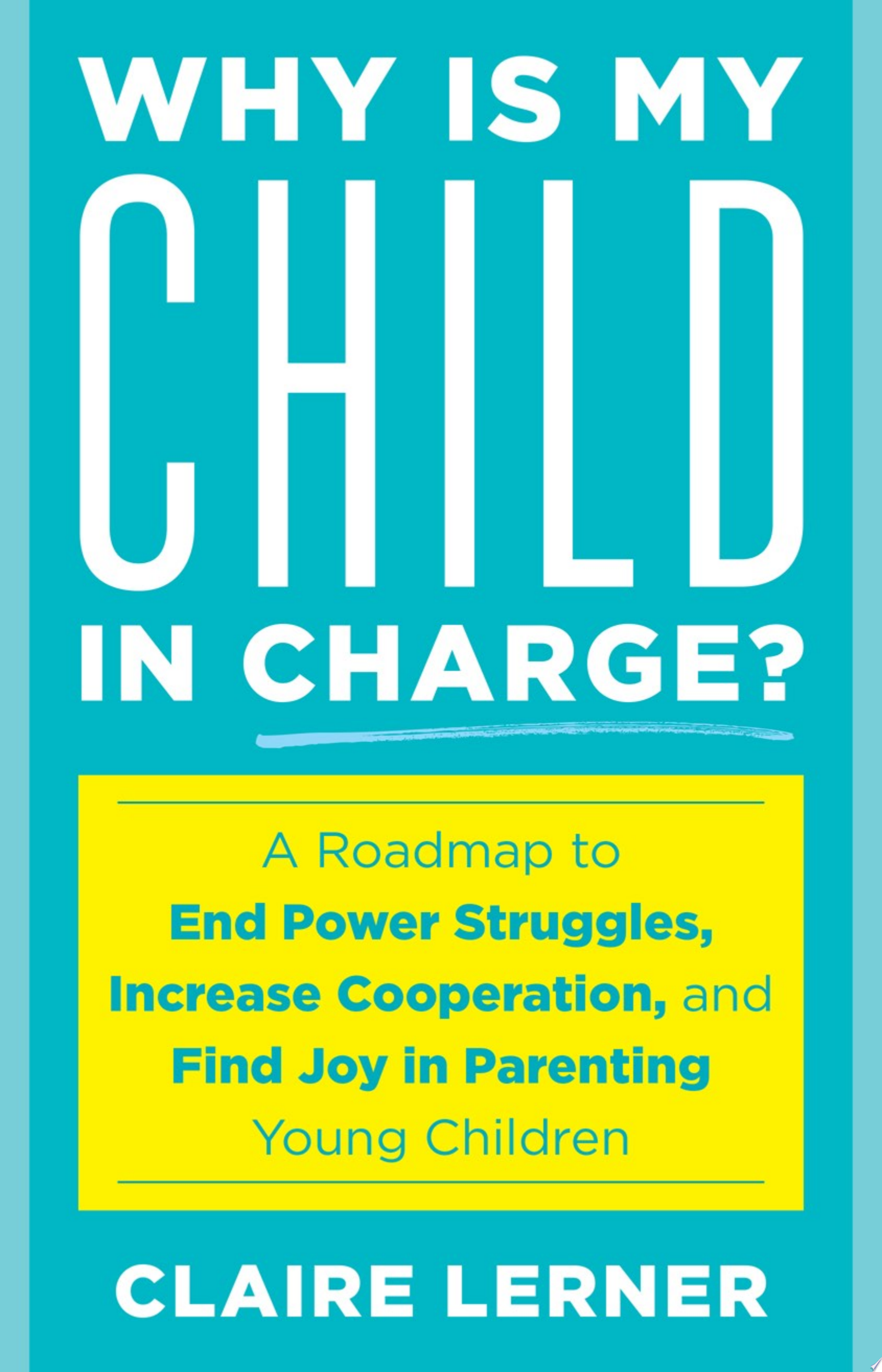
Why Is My Child in Charge?
Solve typical toddler challenges with eight key mindshifts that will help you parent with clarity, calmness and self-control.
Through stories from her practice, Claire Lerner shows parents how making critical mindshifts—seeing their children’s behaviors through a new lens —empowers parents to solve their most vexing childrearing challenges. This process puts parents back in the driver’s seat, where they belong and where their children need them to be. These real life stories provide a roadmap for how to tune into the root causes of children’s behavior and how to create and implement strategies that are tailored to the unique needs of each child and family. Through these stories, Claire provides a treasure trove of practical solutions that are based in science and which work in real life.
Why Is My Child In Charge? picks up where other books have left parents hanging. Most parenting books offer solutions that sound good on paper but don’t work in practice. They are aspirational rather than achievable, or they offer one-size-fits-all approaches that don’t meet the needs of an individual child. They can compound parents’ feelings of frustration and thus, can be counterproductive. Case by case, Claire unpacks the individualized process she guides parents through to solve the most common challenges such as throwing tantrums in public; delaying bedtime for hours; refusing to participate in family mealtimes; and resisting potty training. Employing a relatable story-telling approach, Claire elucidates:
- The faulty mindsets that pose obstacles to parents seeing the situation more objectively
- The essential mindshifts that enable parents to quickly identify the root causes of the problem
- The development of an action plan tailored to each unique child and family
Why is My Child in Charge? is like having a child development specialist in your home. It shows how you can develop “win-win” strategies that translate into adaptable, happy kids and calm, connected and in-control parents. It will help you be the parent you want to be.